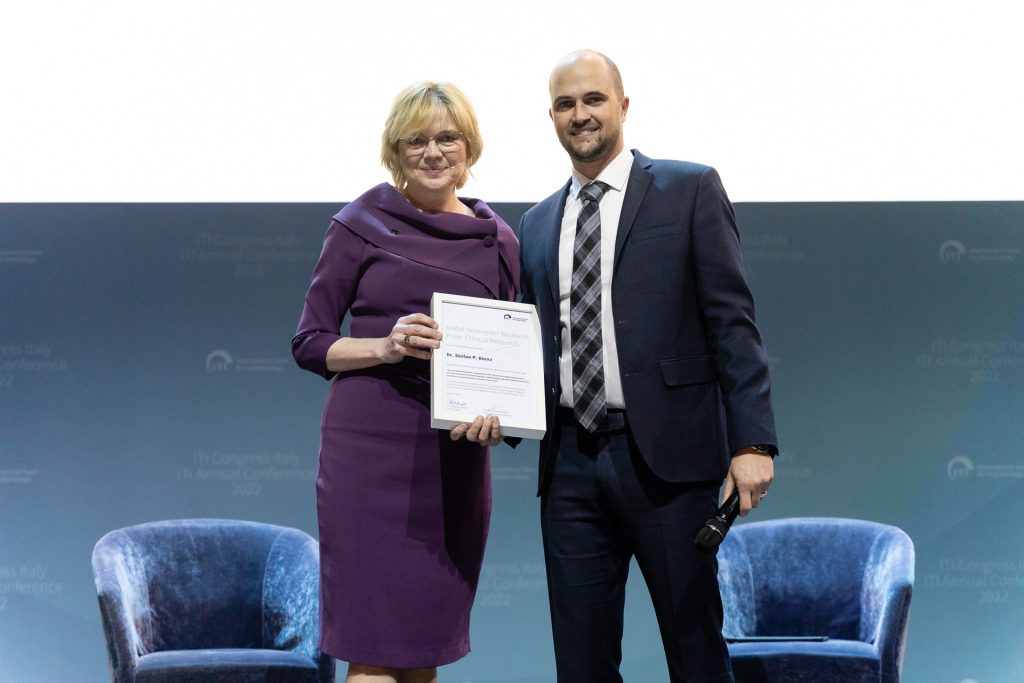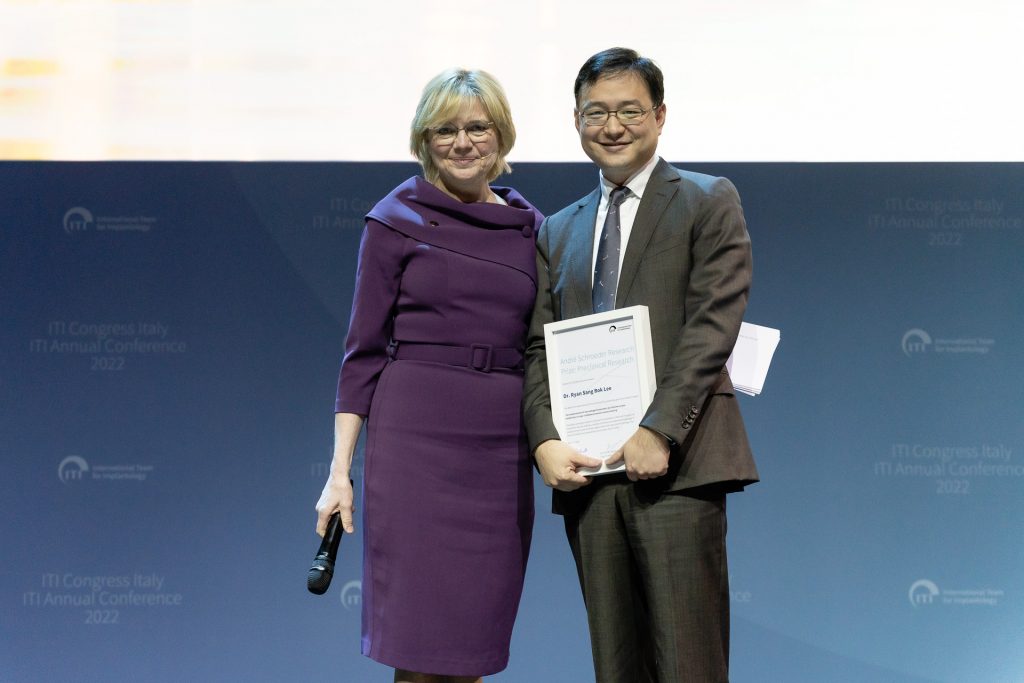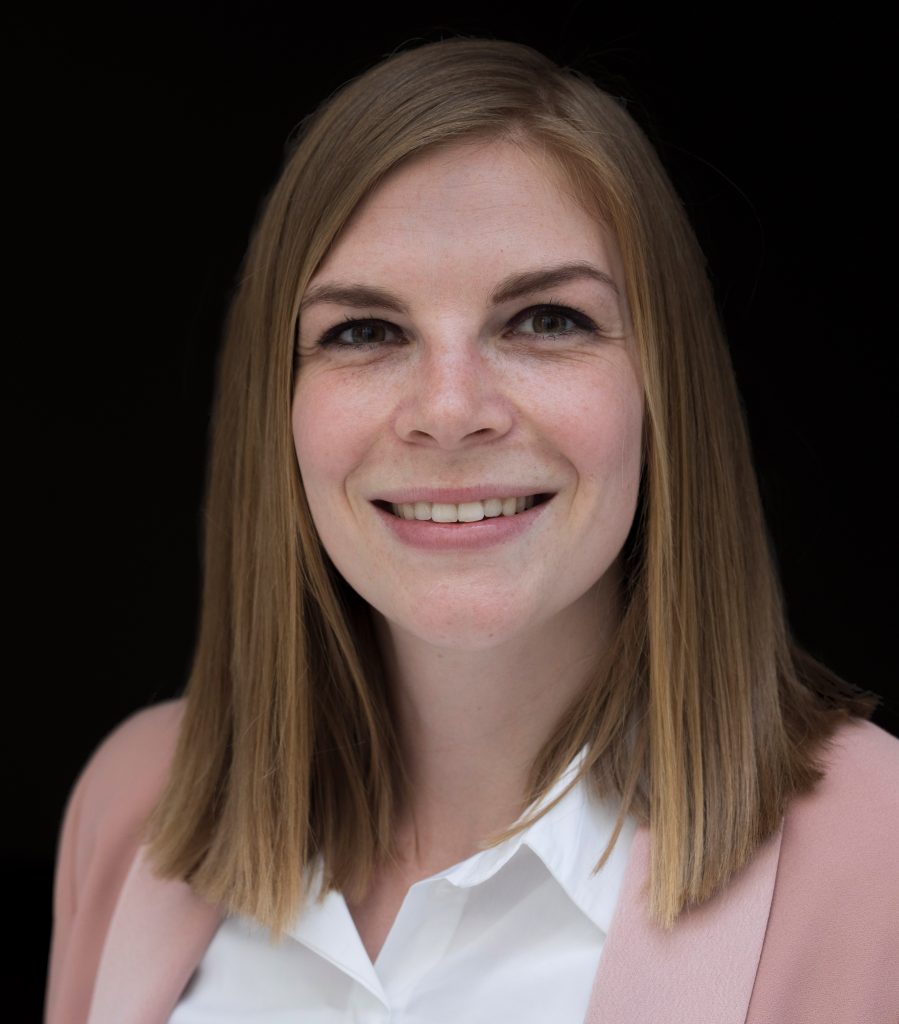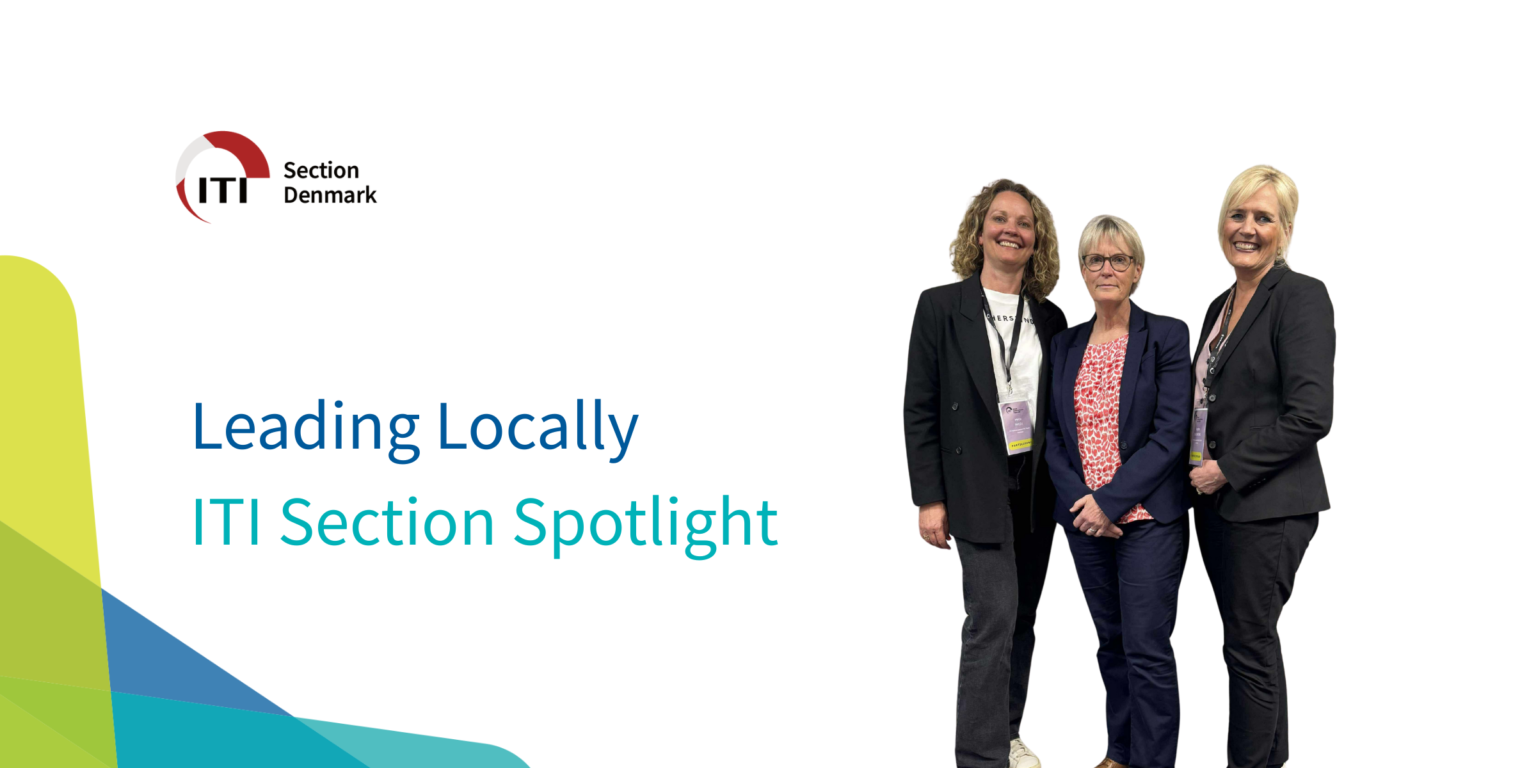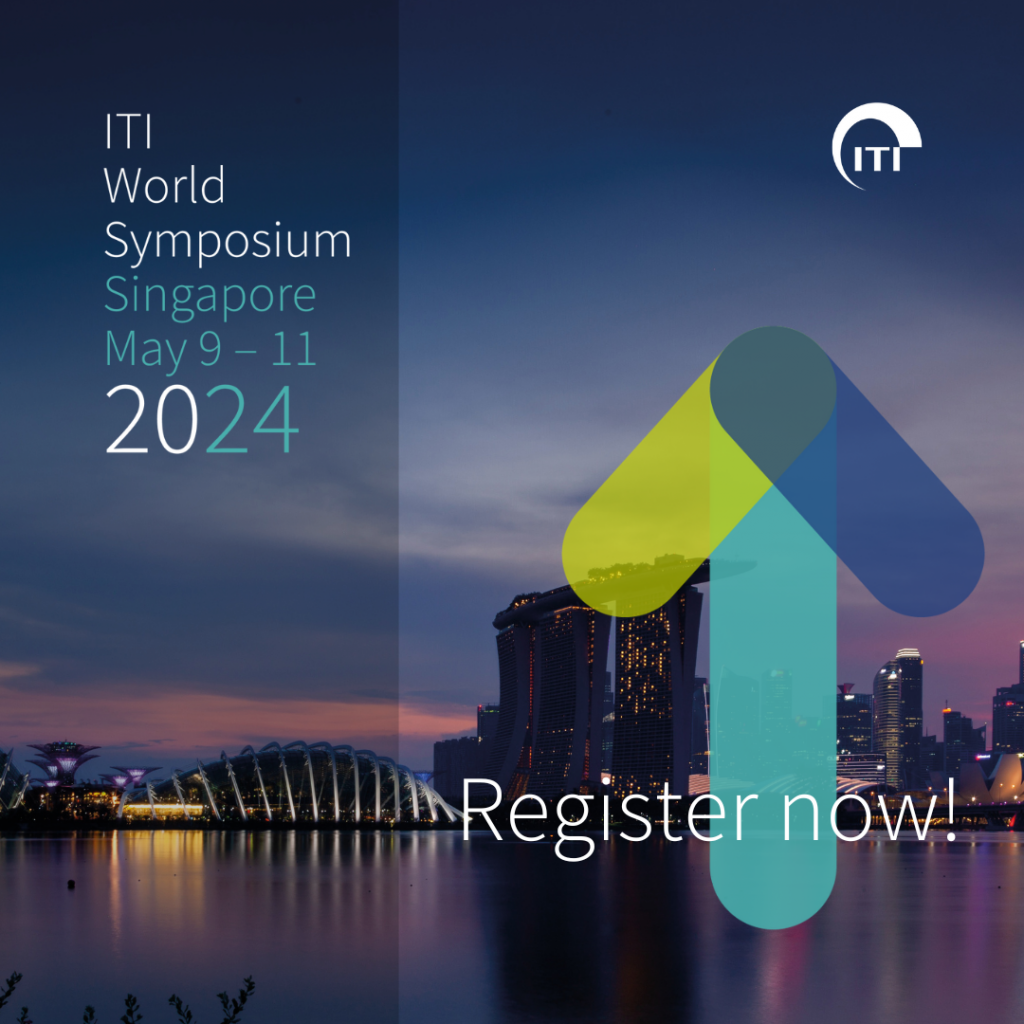We are happy to announce this year’s André Schroeder Research Prize winners: Ryan Lee from Australia and Stefan Bienz from Switzerland! Ryan Lee and his co-authors received the André Schroeder Prize for Preclinical Research for their study entitled “Re-establishment of macrophage homeostasis by titanium surface modification in type II diabetes promotes osseous healing”, Stefan Bienz and his team for their research on “Clinical and histological comparison of the soft tissue morphology between zirconia and titanium dental implants under healthy and experimental mucositis conditions—A randomized controlled clinical trial”.
In this interview, both talk about their motivation to apply, the importance of organizations like the ITI for research, and their reaction when they heard they had won the prize.
Congratulations to both of you on this great achievement! How did you react when you found out you had won the prize?
Ryan Lee: I hesitated a little at first when I saw a Swiss number on the display. It took me a moment to realize that the ITI has its headquarters there. I am incredibly happy about this award and very glad that I was able to attend the ceremony in Rome despite the COVID travel policy.
Stefan Bienz: I still can’t believe that I actually won the André Schroeder Research Prize. I immediately noted the date of the ceremony in my calendar so that I could travel to Rome for the award ceremony together with my family.
What personal impact does the ASRP have on you as a researcher?
Ryan Lee: It would be the international recognition of my research. I have been working in this field of research for about 10 years and sometimes I wasn’t sure if my research was heading in the right direction. Personally, the ASRP has given me additional confidence to continue with my research.
Stefan Bienz: So far, many kind and warm responses from co-workers, the clinic and friends. For the future, I do not know, but I am more than happy with what I have achieved so far, thanks to Ronald Jung, Daniel Thoma and Christoph Hämmerle. My aim is to make progress in research by generating data from well-designed clinical projects.
Is it important to you that your research projects/findings are relevant to daily practice? If so, how do you ensure that this is the case?
Ryan Lee: As a clinician, I believe that considering clinical significance is one of the most important aspects of research. Of course, not all research can be translational straight away. You need multiple stepping-stones before it arrives at a final goal. For example, you need a proof-of-principle study, before you move on to clinical trials. These types of study are often not clinically applicable due to their inherent limitations but they are crucial for further advances in science. However, any research without clear clinical end goals is unlikely to progress further. Thus, I usually start with a clinical question. This usually becomes my research end goal and keeps my research clinically relevant.
Stefan Bienz: This is actually the setting in our clinic. We are all clinicians and we experience problems, opportunities and knowledge gaps during our daily work. This is how we develop new research ideas, and I consider this a big advantage of the setting. Considering the present study, my first preference in terms of material on the soft tissue level is zirconia, from a biological point of view. However, in daily practice, many other technical factors have to be considered and of course, a lot of decisions might relate to the implant system one is using.
How did you come across the André Schroeder Research Prize and what made you apply?
Ryan Lee: I have been an ITI Member since 2006 but I wasn’t initially aware of the André Schroeder Research Prize (ASRP). I first got to know of the award when I was a post-graduate student at the Eastman Dental Institute, UCL. One of my supervisors, Dr Maria Retzepi won the ASRP in 2010 and I was very inspired by her research achievement. I think that was my initial ‘naive’ motivation, but later on it was more about the prestige and recognition in implant dentistry research.
Stefan Bienz: To the best of my knowledge, André Schroeder was working on the topic of osseointegration at the same time as the Swedish group. I am basically aware of his achievements also due to my interest in histology, and I admire the work that André Schroeder did together with his histologist Hermann Stich, who recently passed away. The Prize is well known, and our research group considered this topic as relevant to the future of implantology. Even though nowadays we are only taking small steps in comparison to our predecessors.
What significance do organizations like the ITI have for research in this field?
Ryan Lee: The ITI has significantly contributed to the development of implant dentistry for several decades. I believe the success of the ITI comes from its independence and strong research-oriented mindset towards developing implant dentistry. Academic and financial support from this kind of organization help many researchers/clinicians to continue with their research and provide a platform to share their achievements, ultimately shaping the future direction of implant dentistry.
Stefan Bienz: This project was funded by the ITI and therefore I might be biased when answering. From my point of view, it would have been impossible to conduct a project with such a design and number of patients without the support of a foundation such as the ITI.
How do you personally see the value of the ITI?
Ryan Lee: As I mentioned above, the strength of the ITI comes from its independence from the industry (commercial aspects) and its research commitment to implant dentistry. At the same time, the ITI provides a great platform to share knowledge and new ideas with those who wish to learn. All these values make the ITI a unique and important organization for the profession as a whole.
Stefan Bienz: This is based on very regional experience, but ITI Study Clubs are very successful in Switzerland and attendees have the possibility to access good education and make use of the platform for exchange. So, all very positive in this aspect.
Have you published your research? Then reap the fruits of your success and apply for the 2023 André Schroeder Research Prize. Get more information


